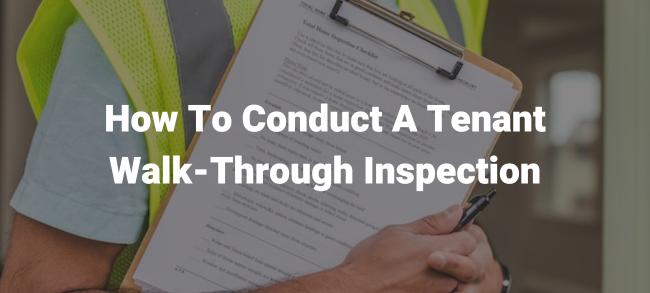Common Mistakes Beginner Real Estate Investors Make
Do you dream of becoming a rental property owner?
Maybe owning a few income properties from which to make a passive income?
Understandably, owning a rental property can be financially rewarding. In fact, real estate has produced many of the world’s wealthiest people.
According to data from the National Council of Real Estate Investment Fiduciaries Index, over the past two decades, real estate has produced an average annual return of 10.8%.
Clearly, property investments can be an extremely lucrative business.
Be that as it may, property investment isn’t quite as simple as people would like to believe. As a matter of fact, it can be an incredible hassle. What you initially thought would be a money-making machine could turn out to be a money pit.
That’s why in today’s article we look at 6 problems to look out for when buying real estate properties.
1. Buying a fixer upper
Buying a fixer-upper can be a double-edged sword. You could either find yourself sitting on top of a gold mine or neck-deep in bills.
Before buying a rental property that needs fixing, ask yourself:
- Will there be sweat equity in the home after it is restored? After all, it only makes sense to fix up the house if the end result will be profitable for you.
- Do I have a network of service providers to help me? Service providers include licensed professionals like a flooring specialist, a landscaper, an HVAC specialist, a roofer, plumber or an electrician.
- Do I have the money to fix up the home? When it comes to fixer-uppers, it’s quite common for costs to run the gamut. What you initially projected would cost, say, $25,000, might end up costing you $35,000.
- Do I have the time to fix up a home? Without previous experience, you may not realize how many hours rehabbing a home takes. Even if you decide to hire a professional, you’ll still need time to choose the materials, supervise the project, and keep a detailed accounting of the expenses.
If you answered ‘no’ to most of these questions, then it’s a clear sign you need to stay away from fixer-uppers. While a turn-key property may cost more , it’s usually ready for occupation the moment you buy it.
This means that you can start looking for tenants right away.
2. Buying a property that doesn’t abide by the 1% rule
What’s your goal when it comes to your property’s ROI? If you are like most property investors, then it’s rental income.
If it’s rental income, then make sure your returns abide by the 1% rule.
So, what’s the 1% rule?
The 1% rule states that the gross monthly rent should be at least one percent of the property’s final price. The idea is to have the rent greater or equal to the mortgage payment so that you are able to break even on the property at worst.
Suppose you buy a house for $100,000. Then, according to the 1% rule, this means that your property should be able to bring in at least $1,000 every month. The calculation is quite straightforward. ($1,000 monthly rent /$100,000 property price =1%).
Some exceptions to this rule exist, however. For instance, if you are buying property in a neighborhood that is rapidly changing and improving.
3. Not considering property taxes
This is also another problem area that many beginner rental property investors forget to consider. When it comes to making profits in real estate, maximizing rental income and minimizing expenses is key.
Property taxes are an expense. The higher they are, the fewer profits remain for you. As such, always do your homework on property taxes prior to buying a rental property.
Generally, metropolitan areas have higher property taxes while rural areas have lower taxes.
Some locations also charge different taxes depending on whether a property is owner-occupied or a rental. To be safe, hire a professional. A local tax assessor should be able to help you determine an area’s property tax.
4. Choosing the wrong location
It’s the real estate agent’s mantra: location, location, location. Essentially, when it comes to real estate, location is key. Understandably, when moving to a new home, you will want assurances that the home is great in all aspects.
So, as a property investor, you need to choose your investment neighborhood wisely. A place where your tenants will be happy to call home.
It’s important to consider safety. The fewer the crime rates there are, the better, and the more likely tenants will want to live there.
You also want to consider curb appeal. High-quality tenants expect high-quality living. They are more eager, for example, to live on a street with nicely painted homes and well-manicured lawns.
Another important factor is the nearby amenities. Look at things like the local schools (more so if you are hoping to rent to families), public transit, grocery shops and more.
5. Thinking real estate investing is a one-man show
To successfully manage your real estate investment, you need to have the right team of professionals. The aim of working with these professionals is to build and grow your rental business.
A successful team of real estate professionals includes people who:
- Keep properties in the top-notch condition
- Solve legal problems
- Secure reliable renters
- Help balance the books
These are especially necessary when you have multiple properties.
6. Not hiring a professional to manage your rental property
Landlording isn’t easy. It can sometimes be a headache, more so if you lack the industry experience. Asking yourself a few questions can help you determine whether or not you make the cut:
- Do I know my state’s landlord-tenant laws?
- Am I willing to deal with midnight tenant emergency calls?
- Do I know the Fair Housing Rules?
- Do I know the tenant rights in my state?
If you are not well-versed in these laws, then you should consider finding help. Hiring a qualified property manager might be in your best interest.
Yes, real estate can be a rewarding investment. But, just like any other investment, due diligence is key. By avoiding these 6 common mistakes, you’ll be on your path to financial freedom in no time.












